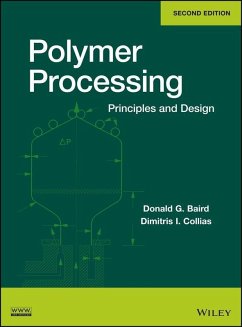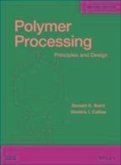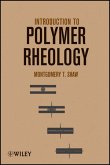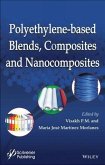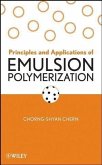Fundamental concepts coupled with practical, step-by-step guidance With its emphasis on core principles, this text equips readers with the skills and knowledge to design the many processes needed to safely and successfully manufacture thermoplastic parts. The first half of the text sets forth the general theory and concepts underlying polymer processing, such as the viscoelastic response of polymeric fluids and diffusion and mass transfer. Next, the text explores specific practical aspects of polymer processing, including mixing, extrusion dies, and post-die processing. By addressing a broad range of design issues and methods, the authors demonstrate how to solve most common processing problems. This Second Edition of the highly acclaimed Polymer Processing has been thoroughly updated to reflect current polymer processing issues and practices. New areas of coverage include: * Micro-injection molding to produce objects weighing a fraction of a gram, such as miniature gears and biomedical devices * New chapter dedicated to the recycling of thermoplastics and the processing of renewable polymers * Life-cycle assessment, a systematic method for determining whether recycling is appropriate and which form of recycling is optimal * Rheology of polymers containing fibers Chapters feature problem sets, enabling readers to assess and reinforce their knowledge as they progress through the text. There are also special design problems throughout the text that reflect real-world polymer processing issues. A companion website features numerical subroutines as well as guidance for using MATLAB¯®, IMSL¯®, and Excel to solve the sample problems from the text. By providing both underlying theory and practical step-by-step guidance, Polymer Processing is recommended for students in chemical, mechanical, materials, and polymer engineering.
Dieser Download kann aus rechtlichen Gründen nur mit Rechnungsadresse in A, B, BG, CY, CZ, D, DK, EW, E, FIN, F, GR, HR, H, IRL, I, LT, L, LR, M, NL, PL, P, R, S, SLO, SK ausgeliefert werden.

